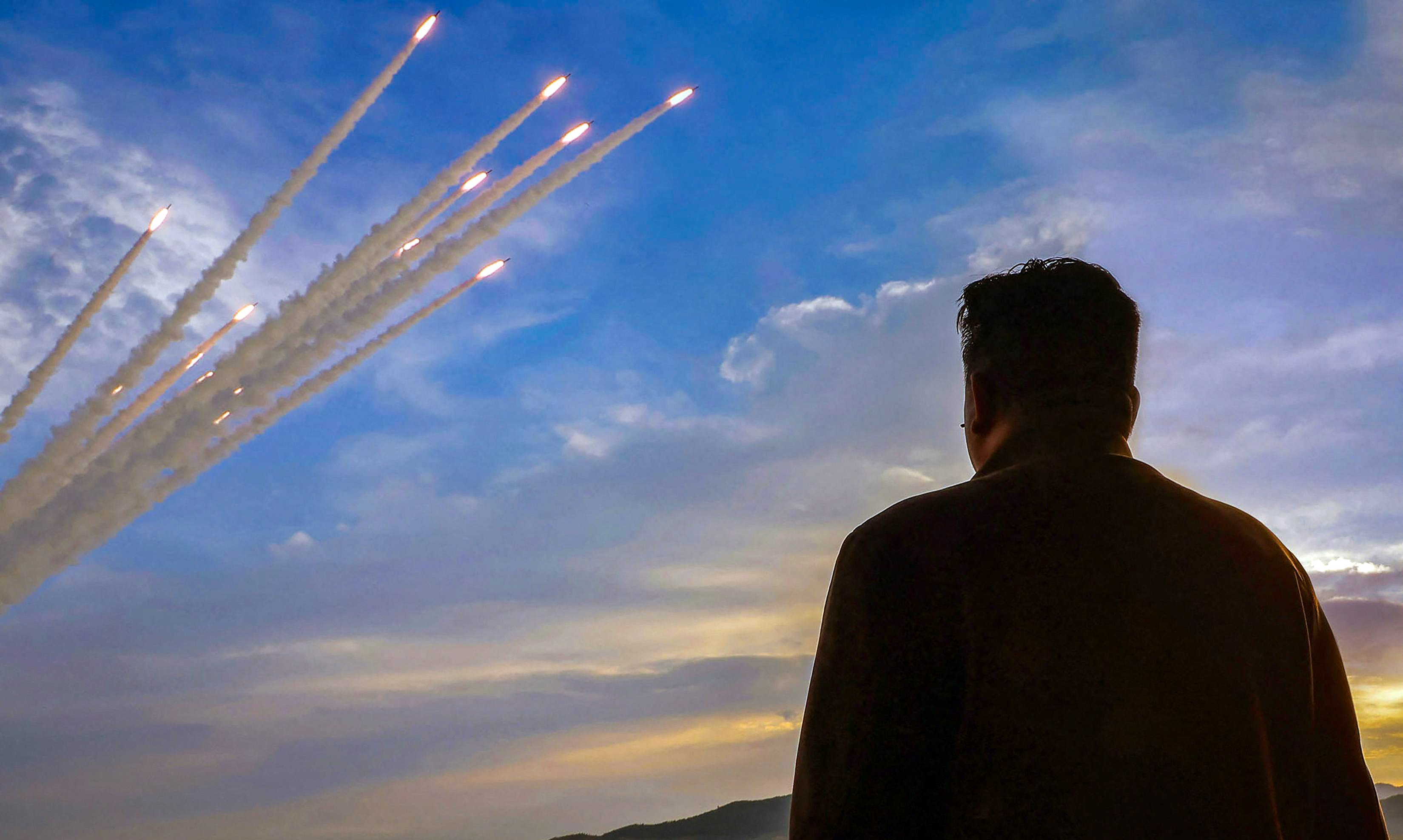Instead of crushing Tehran’s nuclear programme, Israeli and US strikes on Iranian facilities in the past week might have dealt a blow to international nuclear non-proliferation efforts.
Analysts warned that the attacks might not only encourage Iran to accelerate its nuclear weapon programme, but also prompt countries such as China and North Korea to expand their deterrence efforts.
The pre-emptive strikes also risked setting a precedent for US adversaries to justify similar action against any serious efforts by the US’ Asia-Pacific partners to gain their own nuclear weapons, they said.
After a series of Israeli assaults on Iran’s nuclear sites, the US on Sunday deployed more than 125 aircraft and a submarine in an operation to attack three Iranian nuclear sites.
The targeted action against Iran – which Israel sees as an existential threat – was one of the largest efforts to set back Iranian enrichment efforts.
Following the strike, Iran’s parliament unanimously agreed to suspend all cooperation with the International Atomic Energy Agency (IAEA), the United Nations nuclear watchdog that monitors the nuclear non-proliferation treaty (NPT).
Lyle Goldstein, director of Asia Engagement at US-based think tank Defence Priorities, said the legitimacy of the NPT framework would “inevitably suffer a blow since all signatories are entitled to develop nuclear power for peaceful purposes”.
“I recognise that this precedent could conceivably cause would-be proliferators to be more cautious,” Goldstein said.
“But on the whole I am more concerned that this further erodes norms – both with respect to attacking nuclear infrastructure as well as encouraging the dangerous practice of preventive war in general.”
The NPT is an international agreement that was signed by major nuclear-weapon states including the United States, China, and France to prevent the spread of nuclear weapons and its technology. Iran became a signatory in 1968.
Nuclear-weapon states committed to pursue nuclear disarmament while non-nuclear-weapon states agreed not to acquire nuclear weapons. All signatory states are obligated to comply with verifications and inspections of the IAEA.
But the actions of last weekend could nudge growing nuclear powers in Asia, including China and North Korea, in various directions, analysts said.
Zhao Tong, a senior fellow with the Nuclear Policy Programme at the Carnegie Endowment for International Peace, said the strikes could raise concerns in some countries about how protected their civilian nuclear programmes were from similar attacks, potentially push countries to improve transparency and offer credible assurances about the peaceful nature of their civilian nuclear programmes.
For example, China could “grow increasingly concerned” about the vulnerability of its nuclear fast breeder reactors in Fujian province, given US claims that they were producing plutonium for potential weapons use.
“If [countries] don’t [offer assurances about their programmes], the existing norm against striking civilian nuclear infrastructure may come under strain,” he said.
The fact that “even Donald Trump, [who is] widely regarded as a non-interventionist, was willing to use force to pre-empt Iran’s nuclear ambitions sends a deterrent signal”, he said.
“[But] the Israeli and American counter-proliferation strikes also provided political ammunition for adversaries like North Korea and China to justify coercive, even military, measures against any serious move toward indigenous nuclear weapons programmes in South Korea or Japan,” he added.
That kind of reasoning will add to the looming worries that the world’s nuclear arsenals are being “enlarged and upgraded”, according to the Stockholm International Peace Research Institute (SIPRI).
In a SIPRI report released earlier this month, researchers said that nearly all of the nine nuclear-armed states – the United States, Russia, Britain, France, China, India, Pakistan, North Korea and Israel – had continued intensive nuclear modernisation programmes in the past year.
India, Pakistan, and Israel never joined the NPT while North Korea withdrew from the treaty in 2003.
Timothy Heath, a senior international defence researcher at the Rand Corporation, said the recent missile strike “will likely motivate China and North Korea to continue developing their nuclear weapons programme”.
“After all, Iran was struck because it lacked a nuclear deterrence,” he said.
And while the US was unlikely to mount similar attacks on China, it would “probably encourage China to continue expanding its arsenal and developing secure retaliatory capabilities to include tunnel-based and mobile intercontinental ballistic missile launchers as well as submarine-launched nuclear missiles”, Heath said.
China has long stressed the strategic importance of a credible nuclear second-strike ability and has steadily built up its nuclear stockpile and arsenals over the decades.
It is developing strategic bombers and submarines to match American counterparts and last year tested an intercontinental ballistic missile, a weapon that could be armed with a nuclear warhead.
In a further setback to stability, nuclear control talks between Beijing and Washington have largely ground to a halt since 2023.
Goldstein said the strikes on Iran “could cut both ways” for nuclear stability between the strategic rivals.
“On the one hand, it shows that nuclear instability is a troubling reality, but on the other hand, it may decrease Beijing’s inclination to share information and dialogue with the US when the latter is perceived as reckless and inclined towards deception,” he said.
